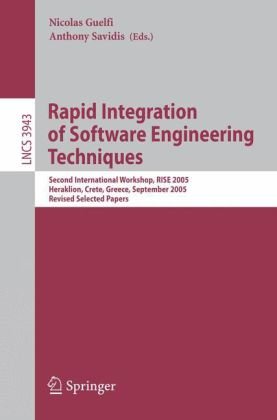

Most ebook files are in PDF format, so you can easily read them using various software such as Foxit Reader or directly on the Google Chrome browser.
Some ebook files are released by publishers in other formats such as .awz, .mobi, .epub, .fb2, etc. You may need to install specific software to read these formats on mobile/PC, such as Calibre.
Please read the tutorial at this link: https://ebookbell.com/faq
We offer FREE conversion to the popular formats you request; however, this may take some time. Therefore, right after payment, please email us, and we will try to provide the service as quickly as possible.
For some exceptional file formats or broken links (if any), please refrain from opening any disputes. Instead, email us first, and we will try to assist within a maximum of 6 hours.
EbookBell Team

4.3
88 reviewsRISE 2005 (http://rise2005.ics.forth.gr/) was the second annual inter-national workshop of the ERCIM (European Research Consortium for Informatics and Mathematics - http://www.ercim.org/) Working Group on Rapid Integration of Software Engineering techniques (RISE - http://rise.uni.lu/). RISE is an international forum for researchers and practitioners interested in the advancement and rapid application of novel, integrated, or practical software engineering approaches being part of a methodological framework, which apply to the development of new or evolving applications and systems. RISE provides an opportunity to present and discuss the latest research results and ideas in the rapid and effective integration of software engineering techniques. Target application domains of interest to RISE include: • Web-based software systems • Mobile communication systems • High-availability or mission-critical systems • Resilient business and grid applications • Ambient intelligence environments • Embedded systems and applications • User interface development • Development environments • Electronic entertainment • Enterprise computing and applications In particular, RISE 2005 focused on an open and inclusive set of key software engineering domains, which formed the focal point of the workshop, including, but not limited to: • Software and system architectures • Software reuse • Software testing • Software model checking • Model-driven design and testing techniques • Model transformation • Requirements engineering • Lightweight or practice-oriented formal methods • Software processes and software metrics • Automated software engineering • Design patterns • Design by contract • Defensive programming